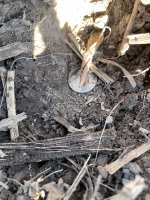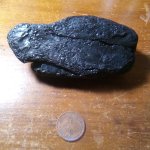nmhunter
Jr. Member
What do you do with the rocks that are larger than your Grizzly on your dry-washer?
I currently collect these rocks as I run material in a 5 gal bucket and then wash them by placing a #8 classifier over another bucket placed in a 20 gal tub. After washing the rocks I discard the +8 material and save the -8 to run through the gold cube at a later time. The problem is this system requires me to transport a lot of water and spend a lot of time that I could better use running material through the dry-washer.
I cannot afford a good metal detector like the GB2 and was thinking that the Falcon MD20 Gold Tracker Probe might be a solution.
I also do not want to just let the rocks lay where they may fall because I do get pretty good color from the material I run through the cube and it seems very wasteful to do all that work digging material and not maximize recovery. On the other hand, I get more gold from the dry-washed material than from what I wash off the rocks because I can move so much more material.
This is my first year using the dry-washer so any incites will be very appreciated.
I currently collect these rocks as I run material in a 5 gal bucket and then wash them by placing a #8 classifier over another bucket placed in a 20 gal tub. After washing the rocks I discard the +8 material and save the -8 to run through the gold cube at a later time. The problem is this system requires me to transport a lot of water and spend a lot of time that I could better use running material through the dry-washer.
I cannot afford a good metal detector like the GB2 and was thinking that the Falcon MD20 Gold Tracker Probe might be a solution.
I also do not want to just let the rocks lay where they may fall because I do get pretty good color from the material I run through the cube and it seems very wasteful to do all that work digging material and not maximize recovery. On the other hand, I get more gold from the dry-washed material than from what I wash off the rocks because I can move so much more material.
This is my first year using the dry-washer so any incites will be very appreciated.






